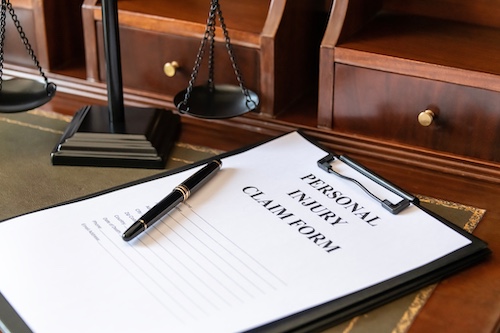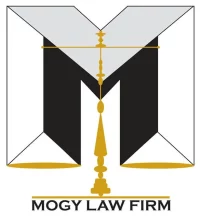What to Expect Before Filing a Personal Injury Lawsuit in Tennessee
Filing a lawsuit is a formal step that begins the legal process in a personal injury case. Whether the case involves a car accident, slip and fall, or wrongful death, Tennessee law sets clear rules that every plaintiff must follow. This includes deadlines, required documents, and court procedures. Understanding these steps helps you avoid mistakes and prepare for what lies ahead.
In this blog, you will learn the key steps involved in filing a lawsuit for a personal injury case in Tennessee and how working with an experienced Memphis personal injury lawyer can help you follow the legal process and protect your rights.
Step 1: Prepare to File
Filing a lawsuit starts with understanding the basic legal requirements that apply to your personal injury claim.
Know the Time Limit
Tennessee law sets a strict time limit for personal injury cases. The statute of limitations is one year from the date of the injury. This rule is found in Tenn. Code Ann. § 28-3-104. If your lawsuit is not filed by the deadline, the court will dismiss it. You cannot recover money damages if your case is filed late.
Confirm the Proper Court
You must file your complaint in the correct court. Most personal injury cases are filed in Tennessee state court. Some civil cases may go to federal court if federal law is involved or if the parties are from different states and the amount in dispute meets the requirement. Jurisdiction and venue must match the facts of your particular case.
Identify the Right Parties
The person filing the lawsuit is the plaintiff. The person or company being sued is the defendant. You must correctly name each party involved. Some cases may include more than one defendant. If the wrong person is named, the court may not be able to grant relief.
Understand the Claims and Damages
You must be able to state what happened and why the defendant is legally responsible. This includes showing that the defendant caused the injury by negligence or another wrongful act. The complaint should request specific relief, such as payment for medical bills, lost wages, or other types of money damages. Every claim must be supported by facts.
Review Filing Fees and Costs
There are costs involved in filing a lawsuit. You will pay a filing fee to the court. You may also need to pay for service of process and other court-related expenses. These costs vary by court and by the type of legal matter. Your personal injury attorney can explain which fees apply to your case.
Talk to a Personal Injury Attorney
Filing a lawsuit includes legal rules and procedures. A personal injury lawyer can help you prepare your complaint, gather documents, and follow the correct steps. Many offer a free consultation to review your case before you file.
Step 2: File the Lawsuit and Begin the Legal Process
Once you are ready, the next step is to file your complaint and start the formal court process.
Draft and File the Complaint
The plaintiff files a written complaint with the court to start the lawsuit. This document must include numbered paragraphs that explain what happened, identify the parties, and state the legal claims. The complaint also includes a request for relief, usually in the form of money damages. You must file the complaint in a court that has jurisdiction over the legal matter and the parties involved.
Serve the Summons and Complaint
After filing, the court issues a summons. This document notifies the defendant that a lawsuit has been filed. You must serve the summons and the complaint to the defendant using a method approved by law. Service proves that the defendant received notice and allows the case to proceed. The rules for service are found in Tennessee Rule of Civil Procedure 4.
Wait for the Defendant’s Response
The defendant must respond to the complaint by filing an answer or a motion. Most defendants have 30 days to respond after being served. The answer must address each claim. A motion may ask the court to dismiss the case or to require more details. If the defendant does not respond, the court may enter a default judgment in favor of the plaintiff.
Court Issues a Scheduling Order
Once the defendant responds, the court usually issues a scheduling order. This document sets important dates in the legal process. It may include deadlines for motions, discovery, and the trial date. All parties must follow this order. Failure to meet deadlines can affect the outcome of the case.
Pleadings Define the Dispute
The complaint and the defendant’s answer are called pleadings. They define the issues the court will consider. These documents shape the legal process and help the judge understand the facts of the case. The pleadings allow each side to prepare for trial or to request other types of relief through motions.
Step 3: Discovery, Motions, and Negotiations
After the lawsuit begins, both parties exchange information, file motions, and may try to reach a settlement before trial.
Start the Discovery Process
Discovery is the part of the legal process where each side gathers evidence. It allows parties to learn facts and review documents held by the other side. Common tools include written interrogatories, requests for production of documents, and depositions. Each party must respond truthfully to discovery requests unless a valid objection applies. The discovery process helps both sides prepare for court and avoid surprises.
File Pretrial Motions
During this stage, either party may submit motions to the court. A motion is a formal request for the court to take a specific action. Common examples include motions to compel discovery, motions to exclude evidence, and motions for summary judgment. A summary judgment motion asks the court to rule in favor of one party if there is no dispute over any material fact. Summary judgment is governed by Tennessee Rule of Civil Procedure 56.
Engage in Settlement Negotiations
Most civil cases settle before trial. The parties may try to reach a deal through direct negotiation or formal mediation. A settlement can end the case without a trial and allow the plaintiff to receive money damages sooner. If both parties agree to the terms, the case is dismissed after a written settlement agreement is signed. A personal injury attorney can help evaluate offers and protect your rights during negotiations.
Step 4: Trial, Judgment, and Appeal
If the lawsuit does not settle, the case proceeds to trial where the court will decide the outcome based on the facts and law.
The Trial Process
At trial, both parties present their evidence and make arguments. The process includes jury selection, opening statements, witness testimony, and closing arguments. Each side may present documents, expert opinions, and other forms of evidence. The judge manages the courtroom and ensures that the rules of procedure are followed. In a jury trial, the jury decides the facts and gives a verdict. In a bench trial, the judge acts as both fact-finder and decision-maker.
Final Judgment
After the trial, the court issues a final judgment. This decision states whether the plaintiff wins or loses and how much the defendant must pay if the plaintiff prevails. The judgment is based on the evidence, legal claims, and the relief requested in the complaint. The court may also decide who pays court costs and other fees. Once judgment is entered, the losing party must comply or take further legal action.
Post-Trial Motions
The losing party may file post-trial motions. These requests ask the court to change the outcome or hold another trial. Common examples include a motion for new trial or a motion to alter or amend the judgment. These motions must be filed within a limited time after judgment.
Appeal to a Higher Court
If a party believes the court made a legal error, they may file an appeal. An appeal must be filed in the appellate court under Tennessee Rule of Appellate Procedure 3. The appellate court reviews the lower court’s decision for legal mistakes. It does not hold a new trial or hear new evidence. The appellate court can affirm, reverse, or modify the final judgment. If the appeal fails, the original decision stands.
Enforcing the Judgment
If the plaintiff wins and the defendant does not pay, enforcement steps may follow. This may include wage garnishment, liens, or seizure of property. Tennessee law and federal law set limits on what can be collected. The court may assist in enforcing the judgment to ensure the plaintiff receives the awarded relief.
Contact an Experienced Memphis Personal Injury Attorney Today!
If you or a loved one has been injured and are thinking about filing a lawsuit, our team at Mogy Law Firm is here to help. We understand how the legal process works in Tennessee and can give you clear, direct guidance from the moment your case begins. Our Memphis personal injury lawyers will review your situation, explain your rights, and handle every step of your case with focus and experience.
Contact us at (414) 334-5472 for a free case review today!









